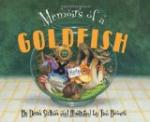If I were asked what was the object of our going to such a dinner I could only answer that it was in order to be invited to others of the same kind. Is it for this we labor and worry—that we scheme and conspire—that we debase ourselves and lose our self-respect? Is there no wine good enough for my host? Will God let such arrogance be without a blast of fire from heaven?
* * * * *
There was a time not so very long ago when this same man was thankful enough for a slice of meat and a chunk of bread carried in a tin pail—content with the comfort of an old brier pipe filled with cut plug and smoked in a sunny corner of the factory yard. “Sunny corners of the walls of Smyrna!”
It is a fine thing to assert that here in America we have “out of a democracy of opportunity” created “an aristocracy of achievement.” The phrase is stimulating and perhaps truly expresses the spirit of our energetic and ambitious country; but an aristocracy of achievement is truly noble only when the achievements themselves are fine. What are the achievements that win our applause, for which we bestow our decorations in America? Do we honor most the men who truly serve their generation and their country? Or do we fawn, rather, on those who merely serve themselves?
It is a matter of pride with us—frequently expressed in disparagement of our European contemporaries—that we are a nation of workers; that to hold any position in the community every man must have a job or otherwise lose caste; that we tolerate no loafing. We do not conceal our contempt for the chap who fails to go down every day to the office or business. Often, of course, our ostentatious workers go down, but do very little work. We feel somehow that every man owes it to the community to put in from six to ten hours’ time below the residential district.
Young men who have inherited wealth are as chary of losing one hour as their clerks. The busy millionaire sits at his desk all day—his ear to the telephone. We assume that these men are useful because they are busy; but in what does their usefulness consist? What are they busy about? They are setting an example of mere industry, perhaps—but to what end? Simply, in seven cases out of ten, in order to get a few dollars or a few millions more than they have already. Their exertions have no result except to enable their families to live in even greater luxury.
I know at least fifty men, fathers of families, whose homes might radiate kindliness and sympathy and set an example of wise, generous and broad-minded living, who, already rich beyond their needs, rush downtown before their children have gone to school, pass hectic, nerve-racking days in the amassing of more money, and return after their little ones have gone to bed, too utterly exhausted to take the slightest interest in what their wives have been doing or in the pleasure and welfare of their friends.




